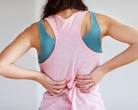 Whether your type of fitness is of the weekend warrior type or the daily workout, you probably have suffered from soreness. It is pretty much par for the course. I actually like a little soreness the day after a hard workout…it reminds me that I have put in the effort. Below is an article by Alan Tyson, Physical Therapist, and owner of Architech Sports in Charlotte, NC, who has been working with athletes for his entire career. As I read it, I immediately noted that he does NOT recommend ibuprofen (admittedly a go-to remedy for me). You might be as surprised as I was to see some of his natural sources for treating muscle soreness….
Whether your type of fitness is of the weekend warrior type or the daily workout, you probably have suffered from soreness. It is pretty much par for the course. I actually like a little soreness the day after a hard workout…it reminds me that I have put in the effort. Below is an article by Alan Tyson, Physical Therapist, and owner of Architech Sports in Charlotte, NC, who has been working with athletes for his entire career. As I read it, I immediately noted that he does NOT recommend ibuprofen (admittedly a go-to remedy for me). You might be as surprised as I was to see some of his natural sources for treating muscle soreness….
By Alan Tyson, PT, SCS, ATC-L, CSCS
Muscle soreness following a vigorous or new workout is frequently inevitable, and though it may be uncomfortable, it’s actually a good thing. It means that you’ve effectively stressed and challenged your muscles, and as your muscle fibers repair themselves, they’ll grow stronger in the process. Post-workout soreness is a normal response to exertion and part of an adaptive physiological process that leads to increased strength and stamina. Here we will discuss what not to do and also what natural remedies may help.
Avoid This Common Quick-Fix If you’re thinking of taking painkillers like ibuprofen for muscle pain, you should know that they may actually inhibit your muscles’ ability to repair, and have been shown to have little impact on exercise-related pain. Not to mention, taking ibuprofen before a workout in order to reduce muscle soreness has been linked to intestinal leakage and systemic inflammation. When used long-term, it may lead to intestinal permeability, allowing bacteria and digestive enzymes to leak into your bloodstream. Habitually using ibuprofen before workouts may also reduce your absorption of key nutrients, particularly after exercise, making it harder for your muscles to rebuild. It is a much better approach to treat muscle soreness with a combination of natural measures, which may require a bit of experimentation to see what works best for you.
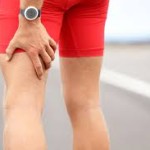 Relieving Exercise-Related Muscle Soreness Naturally Remember, post-exercise muscle pain is not caused by the buildup of lactic acid in your muscles, as was once believed. Rather, it arises from inflammation triggered by micro-tears throughout your muscle tissue. This temporary discomfort is a natural part of your body’s natural muscle rebuilding process. You can successfully manage this pain by making good dietary and lifestyle choices, using a few specific supplements, and by implementing tools such as fresh watermelon prior to your workout, foam rollers, as well as continuing to exercise in moderation, even when you’re sore. Several additional nutritional factors have been proven useful by science in preventing and resolving delayed-onset muscle soreness include:
Relieving Exercise-Related Muscle Soreness Naturally Remember, post-exercise muscle pain is not caused by the buildup of lactic acid in your muscles, as was once believed. Rather, it arises from inflammation triggered by micro-tears throughout your muscle tissue. This temporary discomfort is a natural part of your body’s natural muscle rebuilding process. You can successfully manage this pain by making good dietary and lifestyle choices, using a few specific supplements, and by implementing tools such as fresh watermelon prior to your workout, foam rollers, as well as continuing to exercise in moderation, even when you’re sore. Several additional nutritional factors have been proven useful by science in preventing and resolving delayed-onset muscle soreness include:
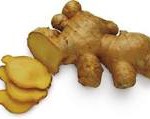 1. Ginger: A natural pain reliever with a long history of medicinal uses, ginger (both raw and heat-treated) has been shown to reduce muscular pain by about 24 percent.
1. Ginger: A natural pain reliever with a long history of medicinal uses, ginger (both raw and heat-treated) has been shown to reduce muscular pain by about 24 percent.
2. Curcumin: Studies have shown curcumin (the pigment that gives the spice turmeric its vibrant yellow-orange color) is effective in relieving pain, increasing mobility, and reducing inflammation.
3. Omega-3 fats: These beneficial fats are highly anti-inflammatory, as well as very beneficial for your heart. My favorite omega-3 fat is krill oil, which has unparalleled ability to quell pain and inflammation.
4. Sulfur/MSM: MSM, which is 34 percent sulfur, is well known for its joint health benefits, improving metabolism, and reducing inflammation. MSM also appears to improve cell wall permeability, so it is useful in helping deliver other active ingredients. Sulfur also plays a critical role in detoxification and is the primary component in your body’s most important native antioxidant — glutathione.
5. Astaxanthin: This naturally-occurring super nutrient is a powerful antioxidant boasting an encyclopedia of health benefits, including decreased post-exertion soreness and faster recovery time.
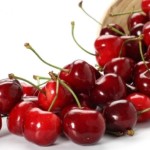 6. Cherries: Cherries are a proven anti-inflammatory, and may also help reduce your uric acid level. Cherries have been scientifically shown to help with conditions like arthritis and gout, and may have some usefulness for general muscle soreness. One study involving a group of long distance runners found that tart cherry juice significantly reduced post-exertion pain.
6. Cherries: Cherries are a proven anti-inflammatory, and may also help reduce your uric acid level. Cherries have been scientifically shown to help with conditions like arthritis and gout, and may have some usefulness for general muscle soreness. One study involving a group of long distance runners found that tart cherry juice significantly reduced post-exertion pain.
7. Arnica: Homeopathic arnica was demonstrated to reduce muscle soreness among marathon runners in a 2007 study. What is arnica?



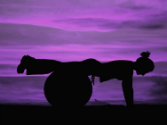

Speak Your Mind